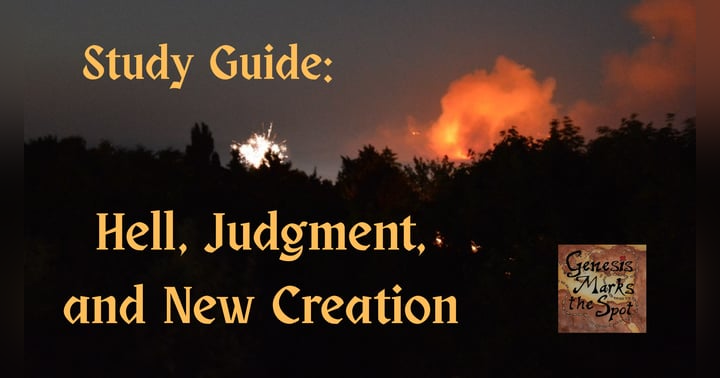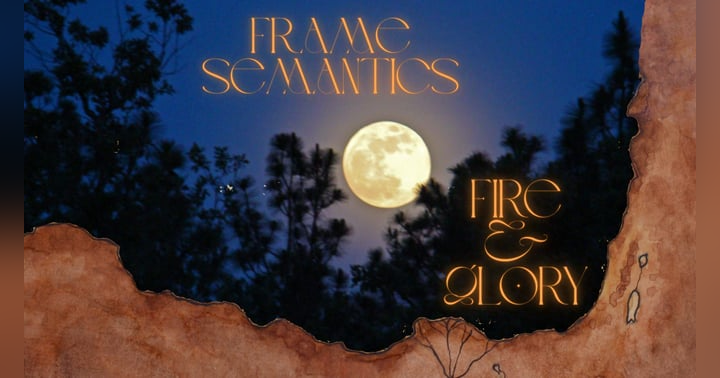Genre Matters: The Historicity of Adam and Jesus

Okay, so unlike my previous posts about the historicity of Adam, this one should be a shorter one, because it boils down to a pretty simple, straightforward idea for consideration. (Again, keep in mind that I’m just trying to give you things to chew on for this discussion; where you land in the end is really not something I care about either way.)
Among the many theological debates swirling around the historicity of Adam, one question seems to loom larger than the rest because of its impact on our faith: If Adam isn't real, how can we trust that Jesus is?
It’s a fair question—at least at first glance. But here’s why it’s a question that doesn’t actually have to matter. It rests on a fundamental misunderstanding of how biblical texts work, especially when it comes to genre.
This post is the latest in an ongoing reflection (see previous entries here, here, and here) on the figure of Adam and what it means to call him “historical.” But today I want to narrow the focus: not to Adam or Jesus as individuals, but to the genre of the texts that speak about them.
The Genre Factor
The impulse to compare Adam and Jesus as parallel “historical figures” assumes that the biblical materials speaking about each belong to the same category of writing--what we today call history. The problem with that presumption is that we are boiling all “historical” genres into a single category----and a modern one, to boot.
The modern discipline of history, grounded in empirical method and corroboration, simply did not exist in the ancient world. And even more importantly, no biblical genre--whether narrative, genealogy, prophecy, or Gospel--maps neatly onto our post-Enlightenment category of "history."
This is especially true for the primeval history of Genesis 1–11. These chapters operate in a unique literary mode--distinct even from the patriarchal narratives that follow in Genesis 12 and beyond. They’re mythic, symbolic, genealogical, theological--all at once. They aren’t less true because they aren’t modern “history.” But they are true in a different register.
To use a modern analogy that only kinda-sorta works: saying Genesis 2 is the same kind of text as Luke 2 is like saying Raiders of the Lost Ark belongs to the same genre as Schindler’s List. Same director, overlapping themes of good and evil, even shared historical backdrops...but radically different storytelling modes, each with its own purpose, tone, and interpretive expectations.
No Eyewitnesses to Eden
Here’s one key distinction between Adam and Jesus: No human author of Scripture ever met Adam. There’s no narrative of an author interacting with him, at all. That doesn’t mean Adam wasn’t “real,” but it does mean that the literary presentation of Adam is mediated through divine revelation, tradition, and theological reflection--not through direct human memory or testimony.
Contrast this with the New Testament. While not a modern historical enterprise, the Gospels and letters of the New Testament do reflect the witness of individuals who either encountered Jesus directly or were one degree removed from those who did. That’s both an epistemological difference as well as a genre difference.
To put it bluntly: we know Jesus differently than we know Adam, because the texts that reveal Jesus function differently than the texts that describe Adam.
Theological Stakes
This isn’t just a literary quibble. It’s a hermeneutical safeguard. Misreading genre doesn’t just distort our understanding of ancient texts, it can also generate theological anxiety where none is warranted. Mixing up genres doesn’t allow us to clue in to the meaning of the text.
When Paul calls Jesus the “last Adam,” he’s not asserting a one-to-one historical equivalency (which would obviously be ridiculous, and yet it would be the most literal reading of the phrase). He’s working within a typological framework that assumes difference as much as similarity. Adam is not Jesus’ peer; he’s his foil.
The good news is that Jesus' reality doesn’t depend on Adam’s being written in modern historical prose. The Gospels aren’t footnoted documentaries, but they are grounded in apostolic witness, lived memory, and public events. Genesis 1–11, by contrast, reaches further back--into the collective memory of Israel, shaped by theological reflection on origins, identity, and the nature of humanity itself.
Respecting the Text
Perhaps the most faithful reading of Scripture isn’t the one that insists everything is “history” in the modern sense, but the one that takes genre seriously, honoring the Bible on its own terms.
Primeval history deserves to be read as what it is: a rich, symbolic, divinely inspired genre that speaks true things about God and humanity, even if it doesn't conform to the modern historian’s toolkit.
So the next time someone asks, “If Adam isn’t real, how can we trust Jesus?”, maybe we can answer: “Because the Bible never asked us to read them the same way.” We aren’t “in Christ” biologically…maybe we don’t have to be “in Adam” biologically, either–maybe that’s a modern category, too.
Just some more food for thought.








